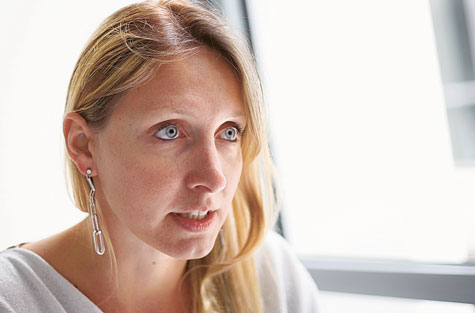
Dubai: The Arab Spring may have rattled the lives of many across the region yet experts believe it will not only boost the economy but also increase profits for business schools.
Michael O'Sullivan, Head of Portfolio and Thematic Strategy at Credit Suisse, discussed this outlook during the CFA Institute Middle East Investment Conference held recently in Qatar.
O'Sullivan presented data analysis of several cases spanning more than 50 years to support his theory that regime change does wonders for the economy.
However, the changes are also benefiting education.
The Dubai branch of the London Business School (LBS) reported its highest admission this year as it celebrated five years in the UAE recently. LBS also recorded increased enrolment from Arab Spring-affected countries like Egypt.
Business potential
"We've not been affected by the Arab Spring, per se, but have seen increasing number of student commuters based in Cairo," Denise Johnsen, Senior Recruitment Manager at LBS Dubai, said. "Upon interview, the candidates, mainly entrepreneurs, saw the coming business potential in Egypt and wanted to be ready when the country stabilises."
Admissions figures for the 2011-2012 academic year show a total of 113 students enrolling at LBS, the highest in the last three years. Figures from the same year also show the enrolment of five students from Cairo compared to none four years ago. In addition LBS reported marginally increased enrolments from students in surrounding countries such as Lebanon and Jordan.
"I've always wanted to continue my education and do my MBA, but the events in Egypt definitely accelerated my decision," said Salah Katamish, an LBS student. Katamish is an investment officer based in Egypt, but commutes to Dubai monthly for classes.
"The country will take a few years to recover and I thought in the meantime as work slows I'd get my MBA and be ready when things pick up."
He added he decided to fund his studies and take LBS' Executive MBA programme as soon as the revolution began in Egypt, but he is not alone.
"I've seen more Egyptians apply for MBAs this year than I have ever seen," he said. "Most of the people I know are optimistic and want to be a driving force for the ‘new' Egypt."
LBS opened its Dubai doors in 2007, just before the global downturn, yet global and regional crises are profitable for executive education as people prepare themselves for recovery.
Positioned fourth on the Financial Times 2012 MBA rankings and with a 35,000-strong global alumni base, the school remains a top choice for many.
"It's really interesting for students to study during a recession because of all the real-time feedback they get from professors," said Johnsen. "They also know that now [period of change] is a good time to invest in their education."












